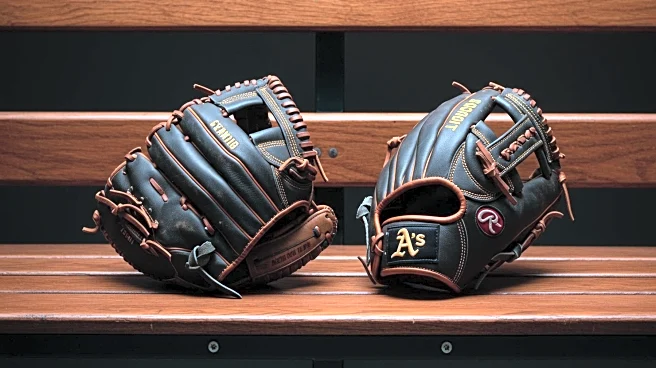What's Happening?
Carlos Cortes, an outfielder for the Oakland Athletics, made MLB history by playing right field left-handed and third base right-handed in the same game. Cortes, naturally left-handed, learned to throw right-handed at a young age to enhance his versatility. During a game against the Baltimore Orioles, Cortes was called upon to play third base due to a strategic pinch-running decision, despite never having played the position professionally. He borrowed a glove from a teammate and completed the inning without any defensive plays coming his way. The Athletics secured a 3-2 victory, marking a successful end to their road trip.
Why It's Important?
Cortes' ambidextrous performance highlights the increasing emphasis on versatility in professional sports, particularly baseball. This unique ability allows teams to adapt to unexpected situations, providing strategic advantages. The Athletics' victory underscores the importance of teamwork and adaptability, showcasing how lesser-known players can contribute significantly to a team's success. Cortes' feat also sets a precedent in MLB, as he joins a rare group of players officially recognized as switch-throwers, potentially influencing future player development strategies.
What's Next?
The Athletics will return home, with Cortes likely to continue his role as a versatile player. His historic performance may inspire other players to develop similar skills, potentially leading to more ambidextrous athletes in the league. The team will aim to maintain their winning momentum, leveraging the adaptability demonstrated in recent games. Cortes' experience may prompt him to prepare further for infield roles, ensuring readiness for any future strategic needs.
Beyond the Headlines
Cortes' achievement raises questions about the evolution of player roles in baseball, where traditional positions are increasingly fluid. This shift may impact training programs, encouraging young athletes to develop skills across multiple positions. The cultural significance of such versatility reflects broader societal trends valuing adaptability and resourcefulness, potentially influencing how sports are perceived and played.









